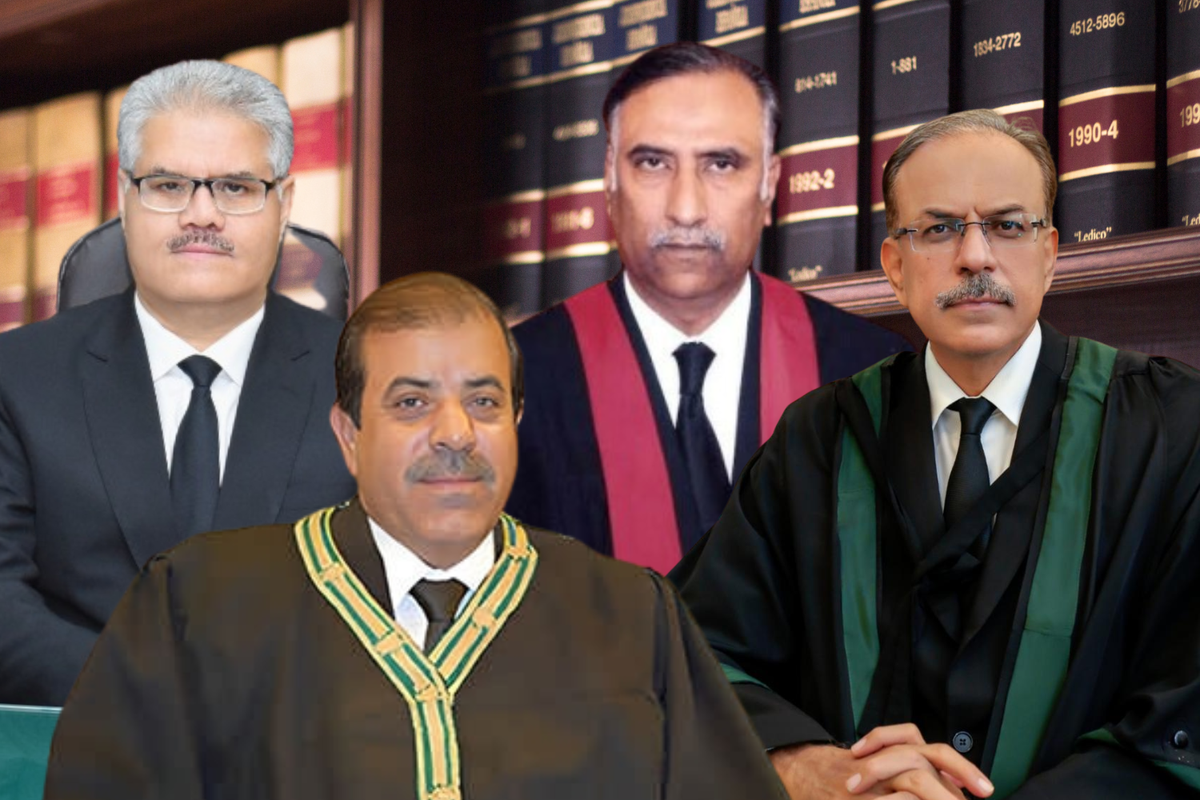Four high court chief justices sworn in across Pakistan amid legal, political scrutiny
Justice Sarfraz Dogar takes oath as Islamabad High Court chief; PTI boycotts ceremony over judicial appointments

Aamir Abbasi
Editor, Islamabad
Aamir; a journalist with 15 years of experience, working in Newspaper, TV and Digital Media. Worked in Field, covered Big Legal Constitutional and Political Events in Pakistan since 2009 with Pakistan’s Top Media Organizations. Graduate of Quaid I Azam University Islamabad.

Justice Muhammad Sarfraz Dogar was sworn in Tuesday as the permanent Chief Justice of the Islamabad High Court (IHC), alongside new chief justices appointed to high courts in Sindh, Khyber Pakhtunkhwa, and Balochistan.
President Asif Ali Zardari administered the oath to Justice Dogar during a ceremony at the Aiwan-e-Sadr in Islamabad. The event was attended by top officials, lawmakers, and legal professionals, including Senate Chairman Yousuf Raza Gilani and Punjab Chief Minister Maryam Nawaz.
Justice Dogar had been serving as acting IHC chief since the elevation of Justice Aamer Farooq to the Supreme Court. His appointment was finalized following recommendations by the Judicial Commission of Pakistan (JCP) just one day earlier.
The oath-taking, however, was marked by a political protest. The Pakistan Tehreek-e-Insaf (PTI) party boycotted the ceremony, with two seats reserved for its lawmakers—Amir Dogar and Zain Mehmood Qureshi—left empty.
Justice Dogar’s elevation remains under legal scrutiny. A recent Supreme Court ruling upheld the controversial transfer of judges from other high courts to the IHC, triggering challenges from sitting judges and members of the Islamabad Bar over seniority and appointment procedures.
Oath-taking across the provinces
In Karachi, Justice Junaid Ghaffar took oath as the new Chief Justice of the Sindh High Court. Sindh Governor Kamran Tessori administered the oath at the Governor's House.
Later, during a visit to the mausoleum of Pakistan’s founder Muhammad Ali Jinnah, Justice Ghaffar acknowledged ongoing confusion in the judiciary following recent constitutional amendments. He said larger benches would be formed to resolve jurisdictional issues stemming from the 26th Constitutional Amendment.
In Peshawar, Justice Syed Muhammad Attique Shah was sworn in as Chief Justice of the Peshawar High Court. He had been serving in an acting capacity since February. The ceremony was conducted by KP Governor Faisal Karim Kundi and attended by Chief Minister Ali Amin Gandapur, federal ministers, and judicial officials.
Governor Kundi later met with Justice Shah and emphasized the importance of institutional cooperation and judicial independence.
Justice Rozi Khan Barrech also formally assumed office as Chief Justice of the Balochistan High Court in Quetta, following the retirement of Justice Ejaz Ahmed Swati. Governor Jaffar Khan Mandokhail administered the oath at a ceremony attended by Chief Minister Sarfraz Bugti and members of the judiciary and legal community.
A time of judicial transition
These appointments mark a transition from acting to permanent leadership in Pakistan’s high courts at a time of heightened political and constitutional challenges. The judiciary is currently grappling with complex questions of authority, legal reform, and public trust—particularly in the wake of recent amendments and ongoing tensions between political parties and the courts.







Comments
See what people are discussing